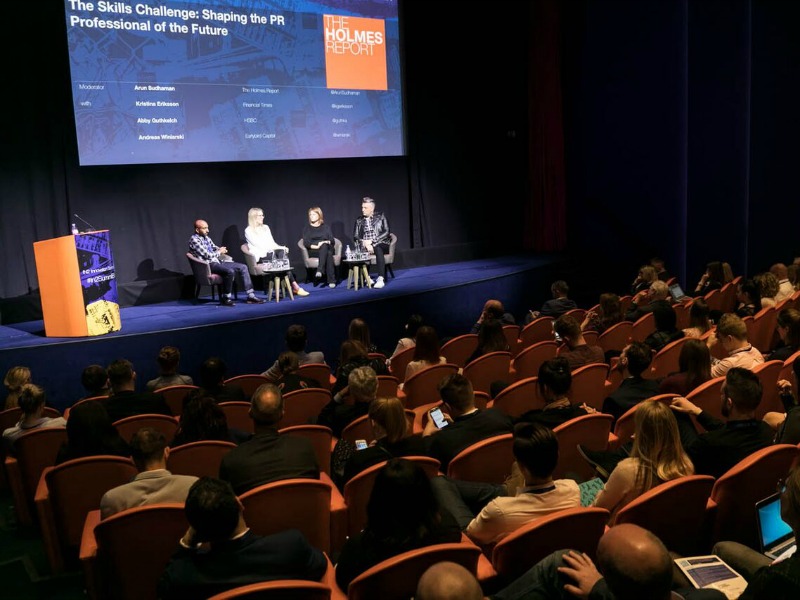Jade Eckardt 25 May 2017 // 9:46AM GMT

LONDON — "Traditional PR agency models don't always work," delegates at this week's In2 Innovation Summit were told by HSBC global head of social media engagement Abby Guthkelch.
Guthkelch was referring to the fast-paced content demands from her digital operation at HSBC, which now number 27 staff. She noted that she now prefers to work in-house or with content production firms, because the traditional agency structure is not agile enough to meet her needs.
"Traditional agency doesn't always work, it works on a case by case basis," said Guthkelch. "We'll throw out a brief and see what comes back to us, if nothing good comes back we'll work on it in house."
Guthkelch added that, despite the dramatic shifts in the media landscape, PR professionals need to retain a focus on core communications skills, such as honing the right message for the right audience, particularly when it comes to navigating through social media noise.
"It's about knowing your audience, knowing who they are, what will resonate with them and what will turn them off," she said.
Guthkelch was speaking during a panel entitled 'The Skills Challenge: Shaping the PR Professional of the Future.' Moderated by Arun Sudhaman, the panelists shared their thoughts on what skills are required to thrive and survive in the fast changing industry.
In addition to Guthkelch, the panel featured Kristina Eriksson, global communications director, Financial Times and Andreas Winiarski, partner at Earlybird Capital.
The panel discussed a variety of topics, including what works for their own teams, what millennials bring to the workplace, and what skills they search for in a new hire.
"I look for people with the same values, who are agile, flexible, can write and speak well, and who can simply make complex messages into understandable English," said Eriksson. "People need to see communications as a part of marketing."
Guthkelch noted that it can be tough to find the right people with the right skills sets. "I'm constantly looking for people with passion, the drive to do better. But it's not one size fits all because we're working with various audience types," she said.
Guthkelch added that although specialists have a place on a team, they need to understand where their role comes into play on an integrated team. "We have some specialists but the majority are generalists," she said.
Sudhaman asked how the panel sees skill profiles changing on their own teams. All were in agreement that the skills new hires come in with vary greatly, and that millennials, Generation Z and applicants from other young generations are drastically different from those before them.
"I've seen a lot of change. Everything our communications team does has completely changed," said Eriksson. "Yesterday, someone new asked 'How do I take the next step in developing myself?' I struggled with my answer because everything is changing so quickly I wasn't sure what advice to give." She said she suggested taking an additional marketing course, and pointed out that as PR people they're mainly focusing on relationships.
Eriksson added that millennials and members of Generation Z are a different breed. "They're less loyal and much more demanding of a social purpose. The younger crowd wants to feel they're doing something very important and have a restlessness about them," she said. "Making their development happen at the rate they want it to happen is difficult."
Winiarski said he sees startups as a good fit for your talent. For him, personality in new hires comes before skills and experience. "When I have applications I meet the person first then look at the CV and discuss it. In the end it's about personality. Of course, experience is very important, but that's something that can be gained," he said.
Winiarski noted the importance of hiring constructive naysayers. "So many people tend to just agree and say yes. It's important to have a different perspective," he said.


































.jpg)

















